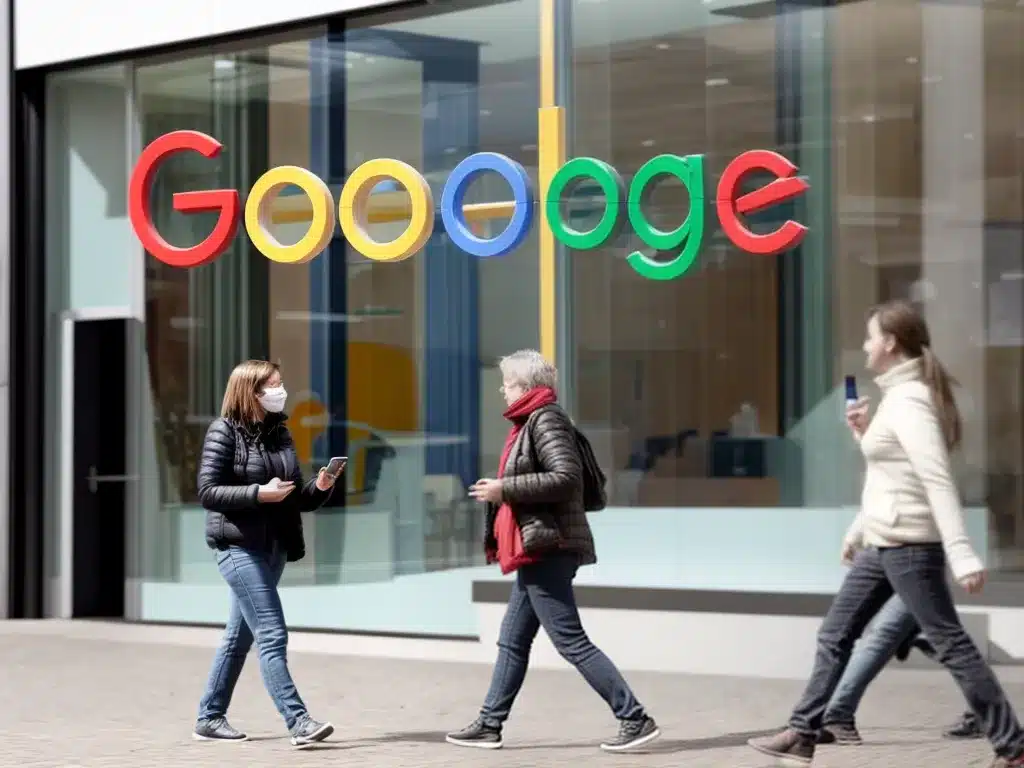
Introduction
Google has announced plans to open 50 new physical retail stores across the UK by 2024. This major retail expansion will see Google stores popping up in shopping centers and high streets across the country.
The move represents a significant investment by Google into brick-and-mortar retail as the company aims to have a stronger high street presence across Britain.
Background
Google currently has only a handful of retail stores operating in the UK. The company opened its first and only store in London back in 2016.
Since then, Google has relied primarily on its online store and partnerships with retailers like Currys and Argos to sell its hardware products like Pixel phones, Nest devices, and Chromebooks to UK consumers.
However, Google now wants to accelerate its retail growth by launching a network of owned and operated stores to showcase and sell its full lineup of products and services.
Details of the Expansion
Google has not released specifics on how many stores it will open or exactly where the 50 new locations will be. However, the company said it is looking for sites in busy city centers and shopping malls where foot traffic is high.
The new Google stores will likely showcase and sell:
- Pixel phones – Google’s flagship Android phones like Pixel 7.
- Nest smart home devices – Thermostats, security cameras, smart speakers.
- Chromebooks – Google’s Chrome OS-powered laptops.
- Pixelbooks – Google’s premium laptops.
- Fitbit – Google-owned fitness trackers & smartwatches.
- Google Home – Smart speakers & displays.
- Stadia – Google’s cloud gaming service.
In addition to sales, the stores will also focus on providing customer service and support. There will be Genius Bar-style help desks where consumers can receive tech assistance for Google products.
The stores may also host how-to workshops, events and classes related to Google’s hardware, apps and services. This could include photography lessons for Pixel phones, cooking classes with Nest devices, and Chromebook tutorials.
Why Google Is Expanding its Retail Presence
There are a few key reasons why Google is ramping up its retail operations in the UK:
-
Promote brand awareness – Physical stores will give Google products more visibility and allow customers to test them out in person.
-
Drive sales – Hands-on demos will help convert browsers into buyers. Support services will also facilitate purchases.
-
Offer unique experiences – Stores can provide workshops, events and experts that online cannot.
-
Compete with Apple – Matching its biggest rival’s store count and retail experience.
-
Support existing retailers – Stores can complement Google’s partnerships with other stores instead of competing.
Challenges and Concerns
Google still faces a few challenges and questions with its retail expansion:
-
Achieving scale – Building a network of 50 stores across the UK in 2 years is extremely rapid expansion. Can Google execute this quickly?
-
Consumer demand – Is there enough interest and demand from UK consumers for additional Google stores?
-
Channel conflicts – Will more Google stores undermine its retail partners like Currys, Carphone Warehouse and Argos?
-
Profitability – The costs of operating physical stores are high. Can Google generate sufficient sales and revenue to justify the investment?
Conclusion
Google’s ambitious plan to launch 50 new stores firmly establishes its long-term commitment to brick-and-mortar retail in the UK. The technology giant clearly sees physical stores as an important way to market and sell its growing range of hardware products and services directly to consumers.
If Google can rapidly deliver on its 50-store goal while complementing its existing retail partners, its increased high street presence should boost brand awareness and sales throughout Britain. However, scaling a retail operation this quickly comes with substantial risk. Google will need to carefully watch metrics like customer traffic, sales conversions, operational costs and channel conflicts.












